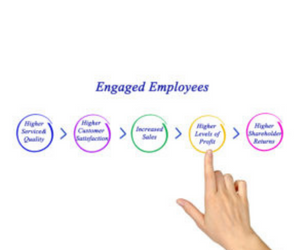Volatile Markets? Try Non-Correlated Investments
At a recent meeting of the Ritossa Family Office Summit in Dubai, Jagdeesh Prakasam said something that caught the attention of the several hundred investors who were listening to him.
He said that by using artificial intelligence and machine-based learning, his company has been able to capture some uniquely important inefficiencies in the financial markets. The result?
Achieving Positive Returns in Volatile Markets
The company where Prakasam is Co-Chief Investment Officer, Rotella Capital Management, has been able to achieve positive returns in both up markets and down ones as well.
“In the last 26 years,” Prakasam told his audience, “we’ve had a track record of double digit uncorrelated returns through some of the most challenging market environments. This includes consistent absolute returns during times of crisis for traditional asset classes.”
He went to point to a revealing graph of some of the world financial crises in the last 20 years. Whether it was the Russian Financial Crisis in 1998, or the Dot.Com Bubble of 2002, or the Financial Crisis of 2009, or Brexit in 2016, when the US Stock market tumbled, Rotella’s investments went up.
So how does he go about finding the non-correlated investments that makes this kind of performance possible?
Rotella’s COO Ian Ram added, “We use a high tech, artificial-intelligence, machine-learning approach to complement our more traditional technical and statistical models. We have 13 research scientists, 10 senior technologists, and 20 other skilled personnel. These individuals include men and women with advanced degrees in physics, engineering, mathematic and financial engineering.”
But that’s only part of his secret sauce. “What we do is an intersection of art and science. The art part is, we begin with intuitive but highly-informed hypotheses and then we test the hypotheses. As part of the testing, we apply sophisticated scientific and mathematical approaches.”
Where Is It All Leading?
When quantitative easing ended in 2014, Prakasam’s colleague, Robert Rotella, knew that among the many implications of ending the six-year $4.5 trillion program, is that the U.S. Government would no longer be supporting the American stock market. This was likely to lead to volatility.
Ending similar liquidity-enhancing programs, whether in Europe or Japan, would also have large implications. After all, when quantitative easing isn’t in effect, it’s typical to have corrections of 10% or 15% in the stock market. Under normal circumstances, these may happen a couple of times a year.
However, during the period from 2008 to 2014, this kind of volatility wasn’t allowed to happen. This meant that for at least six years, investors didn’t have to worry that one of these market drops would happen. They didn’t have to worry about needing liquidity at a time when the market is down.
Today conditions have changed. Rotella’s premise is that investors who need less volatility need more non-correlated investments. He and his colleagues at Rotella put their enormous intellectual and technical resources into discovering investments that do well independently of the stock market’s roller coaster ride.
If you’d like to know more about Rotella Capital Management’s alternative asset approach, contact: investments@rotellacapital.com
Mitzi Perdue is a professional public speaker who talks on family business. Contact her at: mitzi@mitziperdue.com.
Search Articles
Latest Articles
Mitzi Perdue: I Am An Assassination Attempt Survivor
Mitzi Perdue: I Am An Assassination Attempt Survivor About The PodcastThe newsmaker interviews and the news you need when time is short!
Mitzi Perdue Transformational Leadership Lessons Learned In Life
Mitzi-Perdue Transformational Leadership Lessons Learned In LifeAbout The PodcastUnscripted, real, transparent information and interviews from Wes Schaeffer, The Business Fixer, to help you master inbound marketing and generate more inbound sales that close faster,...
Mitzi Perdue | Author | 10-20-24
Mitzi Perdue | Author | 10-20-24Watch The Episode About The Episode Mitzi Perdue | Author | 10-20-24 Learn more about your ad choices. Visit megaphone.fm/adchoicesAbout The PodcastHosted by John Catsimatidis every Sunday at 8 a.m., The Cats Roundtable mixes common...
Tessa Adams’ Journey to Create a Safe, Supportive Online Community for Mental Health
https://foreignpress.org/journalism-resources/tessa-adams-journey-to-create-a-safe-supportive-online-community-for-mental-health Publication –foreignpress.org
Subscribe to Updates
About Author

Mitzi Perdue is the widow of the poultry magnate, Frank Perdue. She’s the author of How To Make Your Family Business Last and 52 Tips to Combat Human Trafficking. Contact her at www.MitziPerdue.com
All Articles
Be the Person Others Want to Do Business With: Be fair
Be the Person Others Want to Do Business With: Be fairThe Beginnings of the Sheraton Hotel The international Sheraton Hotel Chain grew from an investment of just $1000. My father, his brother, and his college roommate received war bonuses after their military service...
Heart Disease In Women: It’s Different
Heart Disease In Women: It’s DifferentHEART DISEASE IS A WOMAN’S DISEASE In the 1950s, we all thought heart disease was a man’s disease. However, more women are dying of heart disease than men. Also, even though the mortality rates for both men and women are...
Prevent Nightmare House of Horrors: Family Business Quarrel, Part 2
Prevent Nightmare House of Horrors: Family Business Quarrel, Part 2 To prevent a Family Business Quarrel 1. Create a culture emphasizing that family members are part of something bigger than themselves. Being too self-centered is a danger in a family business....
Preventing Nightmare House of Horrors, a Family Quarrel, Part 1
Preventing Nightmare House of Horrors, a Family Quarrel, Part 1Since you’re here reading this, the subject probably hits close to home. If so, you have my entire sympathy. If ever there’s a high stakes situation, it’s the family quarrel in a family business. I’ve had...
Four Things Frank Perdue Did to Encourage Employee Engagement
Four Things Frank Perdue Did to Encourage Employee Engagement Employee engagement is one of the most important – possibly the most important factor in an organization’s success. When I look at how Frank Perdue (my late husband) built his chicken company from a...
Employee Engagement – Gallup Really Knows!
Employee Engagement - Gallup Really Knows!Visit Gallup, the People Who Really Know There are 1.3 billion full-time employees in the world. Give a guess: how many feel enthusiastic about and committed to their work? 1) 13% 2) 30% 3) 82% 4) How the heck could anybody...




